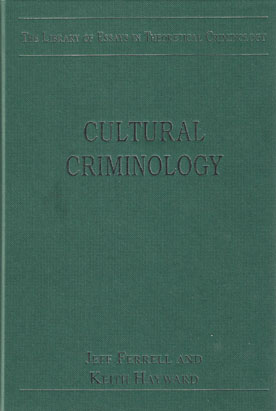We are now closed for the Christmas and New Year period, returning on Monday 5th January 2026. Orders placed during this time will be processed upon our return on 5th January.

Cultural criminology has now emerged as a distinct theoretical perspective, and as a notable intellectual alternative to certain aspects of contemporary criminology. Cultural criminology attempts to theorize the interplay of cultural processes, media practices, and crime; the emotional and embodied dimensions of crime and victimization; the particular characteristics of crime within late modern/late capitalist culture; and the role of criminology itself in constructing the reality of crime. In this sense cultural criminology not only offers innovative theoretical models for making sense of crime, criminality, and crime control, but presents as well a critical theory of criminology as a field of study. This collection is designed to highlight each of these dimensions of cultural criminology - its theoretical foundations, its current theoretical trajectories, and its broader theoretical critiques - by presenting the best of cultural criminological work from the United States, Europe, Australia, and elsewhere.